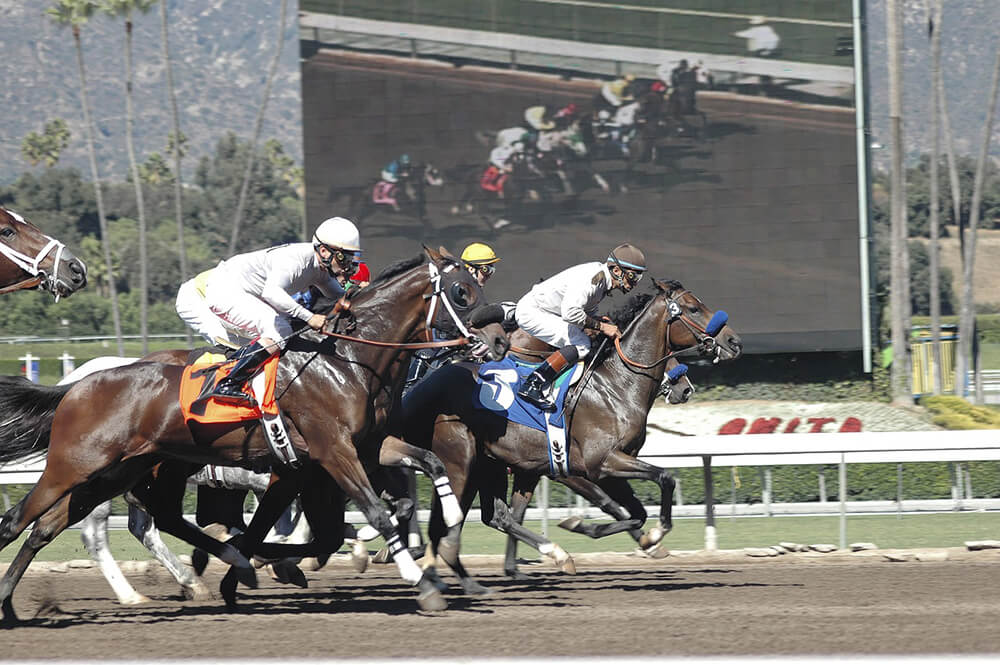
Having at one point looked like one of the leading candidates for the legalization of sports betting in 2021, it now seems likely that sports betting fans may have to wait until 2022.
At first glance, the situation appears relatively hopeful. Rep. Adam Koenig, whose efforts in promoting sports betting this year, has said that he would be submitting a new bill next year. But a recent Supreme Court ruling that could potentially hit the already existing betting sector in Kentucky may ultimately mean that Koenig’s efforts could be in vain.
Back in September, the Kentucky Supreme Court produced a new ruling that stated the Historical Horse Racing (HHR) model that is used by Exacta in the state does not fit the legal definition of pari-mutuel wagering and so may be in jeopardy.
Kentucky doesn’t permit regular casinos, but instead, the land-based betting industry is based on these HHR machines that have the appearance of slot machines but are based on math derived from past horse races to determine winnings. The suit was brought by the Family Trust Foundation, which may now attempt to secure more rulings against HHR.
This is a sector that brings in significant cash and tax revenue throughout the state. Figures show that the handle from these machines in 2020 was over $2.2 billion, which translated into $33.8 million in tax revenue, along with higher purses for horse racing. That factor, combined with the peculiarities of Kentucky politics, may mean sports betting won’t get a look in next year.
The Kentucky legislature meets for only 30 days in odd-numbered years. According to the plan for 2021, there will be four days devoted to organizational issues in January, with most of the legislative work conducted in February and March ahead of the closing of the session on March 30.
Given the importance of HHR, and the pressing need to legalize the HHR systems, it is unlikely that the limited time available in this legislative session will be used to address sports betting.
Politically, passing any bill that would officially legalize HHR could be the biggest gaming voting issue in the state since the introduction of the lottery in 1988. The prospect of two major gaming issues coming up for a vote in the same year, given the conservative nature of the state, is unlikely.
This prospect is made even less realistic by the fact that the legislative hurdle is higher in odd-numbered years. Rather than the simple majority that is required in even-numbered years, sports betting would need a three-fifths majority to get out of the House.
One chance for sports betting being passed this year could lie in the fact that passing one gaming bill may encourage legislators to tackle a second. According to Koenig, passing an HHR bill may ease any potential distaste about the subject:
“On the flip side, once people experience it and go home and realize their churches didn’t kick them out and life went on as normal after there was the vote, then maybe people will come back and say you know what that wasn’t so bad, let’s talk about this.”
Another factor could be the changing situation in the sports betting sector. Indiana, which is one of Kentucky’s neighbors, has successfully introduced sports betting, which has caused some frustration among a section of Kentucky residents. Of the other states bordering on Kentucky, four: Virginia, West Virginia, Illinois, and Tennessee, have already introduced legal sports betting, while Ohio and Missouri are planning to. The prospect of more Kentuckian tax dollars heading out of the state could concentrate legislators’ minds.
 0
0 7946 views
7946 views 0
0 6595 views
6595 views 0
0 7668 views
7668 views 0
0 6534 views
6534 views 0
0 7446 views
7446 views 0
0 9775 views
9775 views 0
0 9464 views
9464 viewsInteractive map with projections and information about the legalization for every state.
Legalization Tracker 0
0 7039 views
7039 viewsDiscover which sportsbooks are the most trustworthy, offer the best bonuses, and find the active promo codes.
About Betworthy
Our team consists of industry experts, professional gamblers, and passionate sports journalist. We have a rigorous review process and editorial standards and we do our best to keep treating our readers fairly and providing unbiased free and professional information.
120 k Monthly Visitors
200 + Helpful Articles

If you or a loved one is struggling with a gambling addiction, this page will provide you with all you need to know to get help.
Learn more →
Learn how to make educated bets and go from placing simple singles to advanced strategies and how to spot arbitrage opportunities.
Learn more →